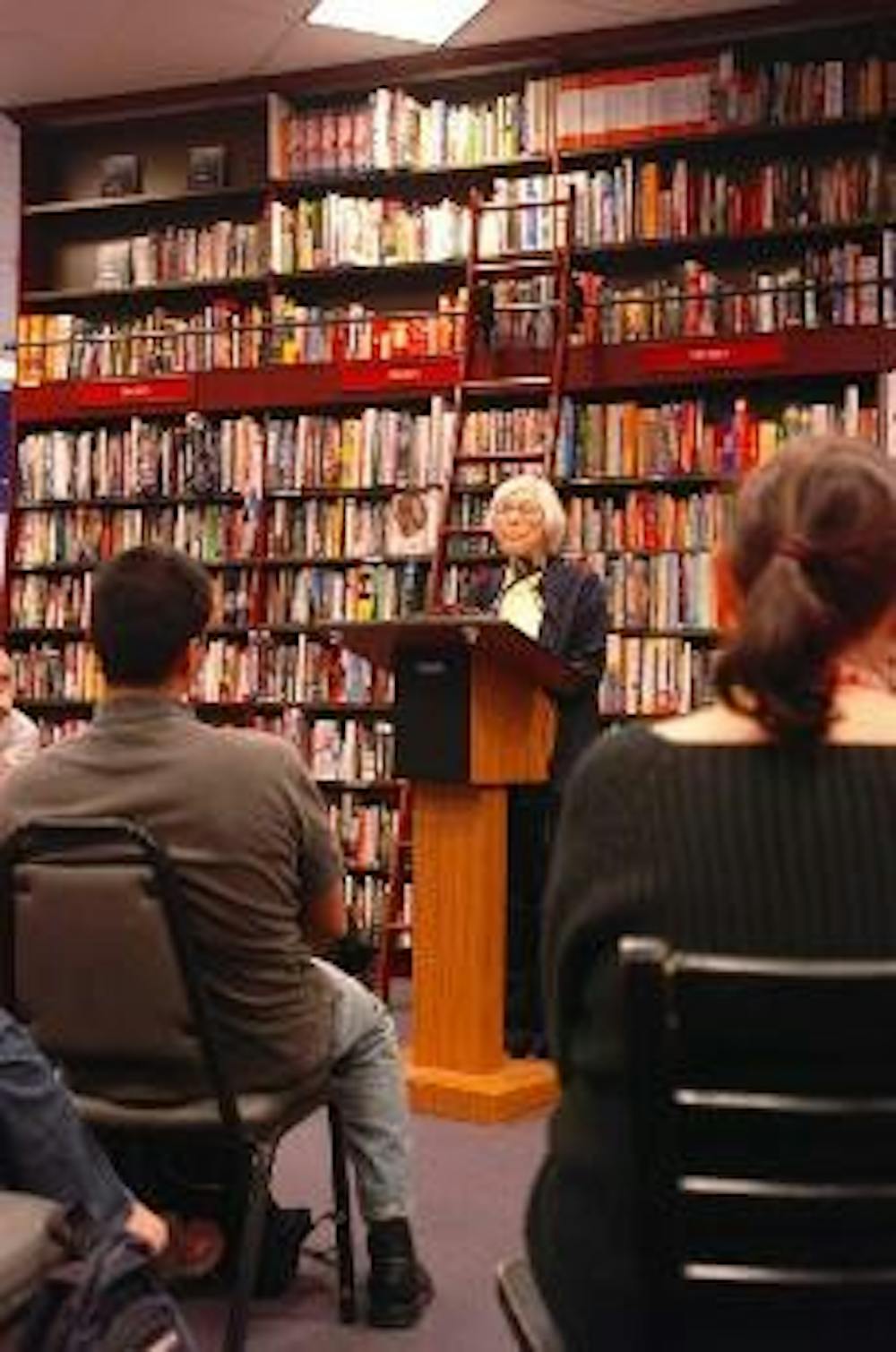
Hannah Arendt's writings on totalitarianism could have ominous resonances in the modern era, according to author Elisabeth Young-Bruehl.
At the Penn Bookstore yesterday, Young-Bruehl presented her book Why Arendt Matters. The author related the theory of autocracy discussed by Arendt, a provocative author and political commentator as well as Young-Bruehl's doctorate professor and mentor, to current events.
"Torture [is] the key proto-element of a totalitarian regime," Young-Bruehl said. This is "interesting to keep in mind when we live in a country that now has sanctioned torture."
Arendt spent much of her career attempting to better understand the foundations of totalitarianism.
Throughout her presentation, Young-Bruehl hinted at the applicability of Arendt's totalitarian model to world events today.
"You can make connections of why this matters," she said.
According to Young-Bruehl, Arendt offers criteria in her books by which a reader can judge the health of a government.
"Hannah Arendt's purpose was not to just comment on political happenings, but also about ways of thinking about politics," Young-Bruehl said.
The area of most controversy in Arendt's career arose over her coverage of Nazi leader Adolf Eichmann's trial in 1963 for the The New Yorker.
After the trial, Eichmann - known infamously as the man behind the "Final Solution" of the Holocaust - was found guilty of crimes against humanity.
In her book, Eichmann in Jerusalem: A Report on the Banality of Evil, Arendt argued that Eichmann was not a monster, just a mindless bureaucrat.
Young-Bruehl said that Arendt found Eichmann to be a man who "couldn't conduct dialogue . that is colloquially called [a] conscience," but that he was not a "psycho."
Also a critic of the U.S. government during the Cold and Vietnam wars, Arendt wrote that "America had departed from its founding ideals," Young-Bruehl said.
She closed out her presentation by expressing fear at the current political situation of the United States.
"I [feel] that the world I'm living in today . [has] so strongly regressed. It was a very troubled period after we lost the Vietnam War, but the trouble we are in now is so much more, is so much graver a crisis. What [Arendt] saw in its incipience is full-blown now."
The Daily Pennsylvanian is an independent, student-run newspaper. Please consider making a donation to support the coverage that shapes the University. Your generosity ensures a future of strong journalism at Penn.
DonatePlease note All comments are eligible for publication in The Daily Pennsylvanian.







